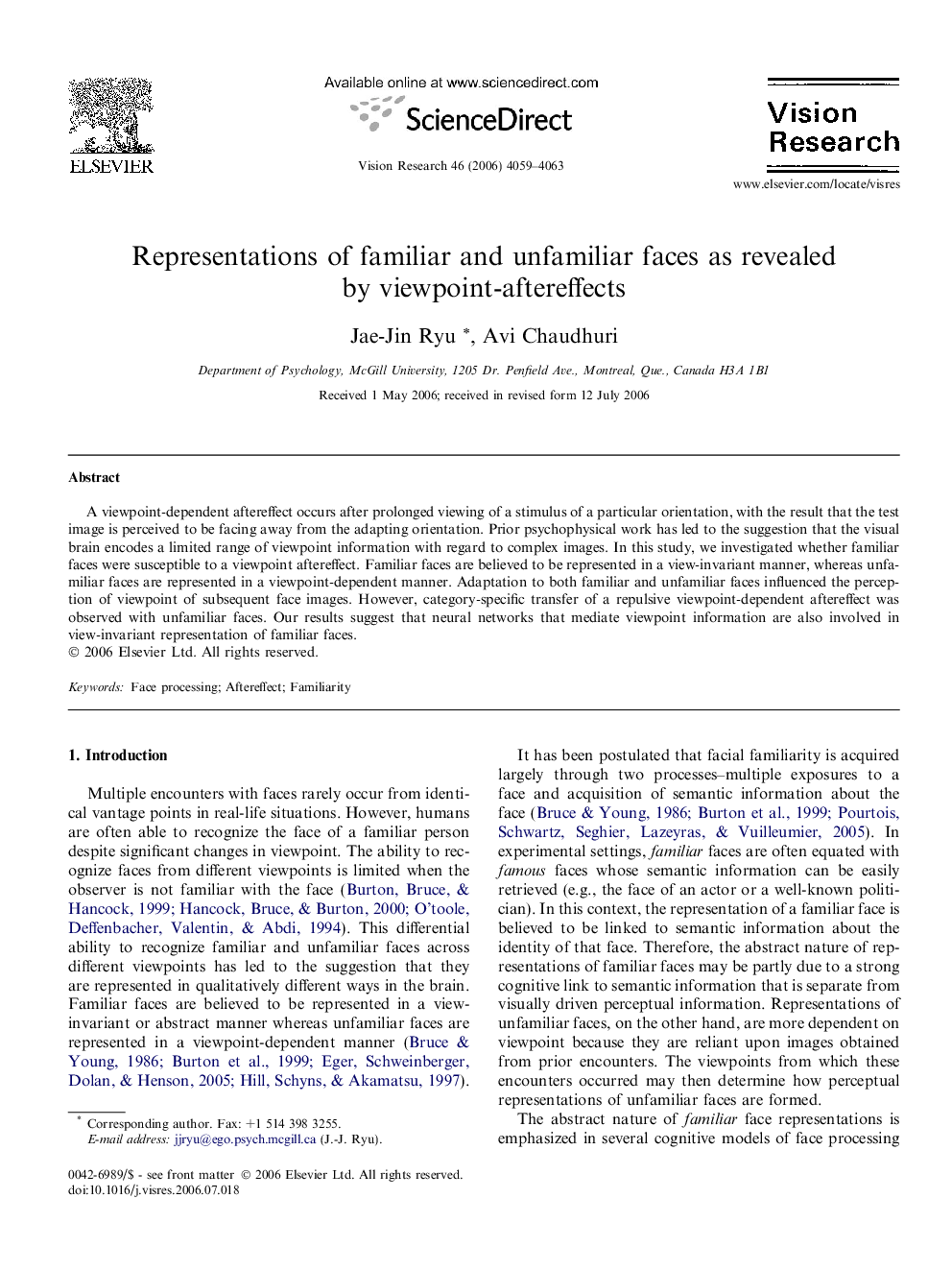| Article ID | Journal | Published Year | Pages | File Type |
|---|---|---|---|---|
| 4036545 | Vision Research | 2006 | 5 Pages |
A viewpoint-dependent aftereffect occurs after prolonged viewing of a stimulus of a particular orientation, with the result that the test image is perceived to be facing away from the adapting orientation. Prior psychophysical work has led to the suggestion that the visual brain encodes a limited range of viewpoint information with regard to complex images. In this study, we investigated whether familiar faces were susceptible to a viewpoint aftereffect. Familiar faces are believed to be represented in a view-invariant manner, whereas unfamiliar faces are represented in a viewpoint-dependent manner. Adaptation to both familiar and unfamiliar faces influenced the perception of viewpoint of subsequent face images. However, category-specific transfer of a repulsive viewpoint-dependent aftereffect was observed with unfamiliar faces. Our results suggest that neural networks that mediate viewpoint information are also involved in view-invariant representation of familiar faces.
